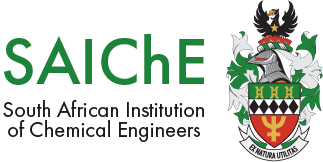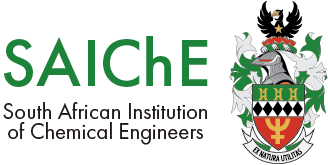CPD 3 credits. CPD Ref. No. SAIChE-434 Provider: E4A (SAIChE-SPV-004)
Includes numerous Sub-Courses such as Variables Analysis for Piping Design, Pipe Sizing, Pipe Materials options and selection, Critical Corrosion Barriers in Piping, Installations, Design of Pressure Piping and more.
There are 6 Design Toolboxes included that serve as powerful backup guidelines for total Process Designs. The Pre, Mid and Post-Reading Files provide unique and useful details of design and operational guidelines.
This new, unique and information packed Course enables those involved in design, projects, and plant operations to analyse and design a wide range of piping system applications in greater detail.
This enables more cost-efficient and effective engineering designs aligned with process requirements. Every year we update with new trends and improvements in piping and this Course covers twelve types of piping systems covering metals and non-metals such as plastics through to concrete and combinations of special materials.
This Course first provides special sub-courses covering important aspects of materials fundamentals affecting piping systems design, including the importance of avoiding recycled materials, temperature and pressure inter-relationships, and corrosion factors to consider in all piping system designs.
Also of importance is the training of the material grades and schedules for both metallic and non-metallic piping and the care to understand pressure downrating for temperatures per the schedules.
The second main section involves training attendees to apply the E4A design algorithm and analytical methods. We discuss in detail the variables stemming from these analyses and how these should be considered in all engineering pipeline designs. We also ‘drill down’ on the critical variables.
The Course then addresses the design of piping systems from a checklist of steps in the design and using ASME B31 as the prime engineering standard as well as the E4A 3-Part process for selection of corrosion barriers, structural pipe bodies and external protection finishes. There is also a clear focus provided on the pressure and hazards standards of SANS 347 and SANS 310 as affects design of piping systems. Associated equipment such as in-line mixers and valve types are also covered.
There is much attention applied on the matter of piping sizing and the project cost implications of pipe sizes relative to friction heads and pump selection. There is a supporting sub-course on Economics in Piping Design with interesting examples of cost savings through understanding where leverage in savings can be achieved.
The third main section addresses the important subjects of pipe installations and related design requirements to be considered. There is also consideration given to the total system & inter-locking needs of piping and pumps.
The final summary of the Course that we present at the end of DAY 2 is prepared as a series of DESIGN STAGES OR STEPS in a master chart with control checklists, and the appropriate design standards and design limitations are discussed and finalized. Interesting and unusual case studies are also presented.
MAIN OBJECTIVES
The main objective is to develop skills of attendees to approach pipe designs as a total system design including related key components such as pumps, valves, pump suction and discharge design, and essential protection against water hammer and other system loads. VFDs are also carefully addressed.
Economic benefits are firstly achieved by a thorough evaluation of different materials options and assessing the most effective materials for the service and functional needs, the total process variables, the required and design lifetime, the topographical and installation constraints and all potential risks. Benefits are secondly achieved through optimisation of the design and a deeper understanding of how design approaches and parameters can be leveraged to greater savings and profits, whilst not compromising any safety factors or EHS considerations.
Attendee comments:
“Informative Course and would highly recommend it to my colleagues. Thank You.”, Boipelo M.;
“Great experience, learned a lot, valuable knowledge was shared”, Christo S.;
“A great Course which I really enjoyed”, Grant D.;
“Thank you for this excellent Training Course”, Anje JvanR.
Book by email to
Cost 2025:
Registered Persons Fees/Rates are R6650 (+VAT) for the 2 Live on-line days and 1 private day CPD Courses. 3 CPDs.
Quantity discounts are available for group attendances or multiple bookings paid in advance.
All courses include:
a. Interesting pre-reading material is sent to attendees normally 2 days prior to the start.
b. Full course materials are emailed ahead to you for the course and your personal library.
c. Videos links through ZOOM or Microsoft Teams still enable samples of products to be shown.
d. The Course framework/plan is sent to attendees as an Excel Document enabling easy tracking.
e. Workshops which include case studies and worked examples are interspersed with tea and lunch breaks and all materials are sent ahead to attendees for these exercises.
f. A Certificate of Attendance with CPD points reflected is provided at the end of the event.

